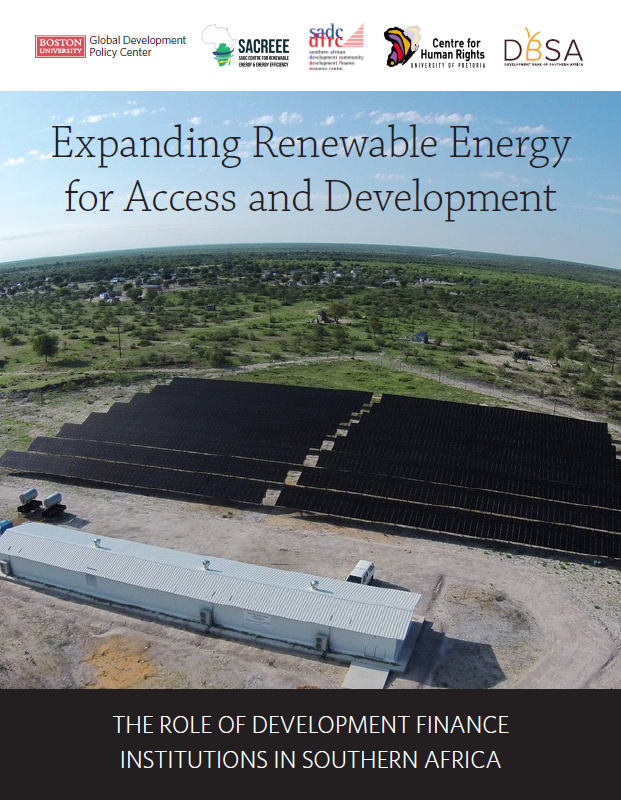Renewable EnergyRenewable EnergyTransitions in a Period of Debt Distress in Southern Africa
In 2020, the SADC Centre for Renewable Energy and Energy Efficiency (SACREEE), the SADC DevelopmentIn 2020, the SADC Centre for Renewable Energy and Energy Efficiency (SACREEE), the SADC DevelopmentFinance Resource Centre (DFRC), the University of Pretoria Centre for Human Rights (CHR)and the Development Bank of Southern Africa (DBSA) collaborated with the Boston University GlobalDevelopment Policy Center (GDP Center) to produce a report entitled Expanding Renewable Energy for Access and Development: The Role of Development Finance Institutions in Southern Africa. That report provides a roadmap for how the Southern African Development Community (SADC) region could expand the use of renewable energy (RE) to increase energy access and spur economic development.It projects that the region could attain full energy access and 53 percent renewable energy capacity by 2040 while on its way towards zero-carbon growth.
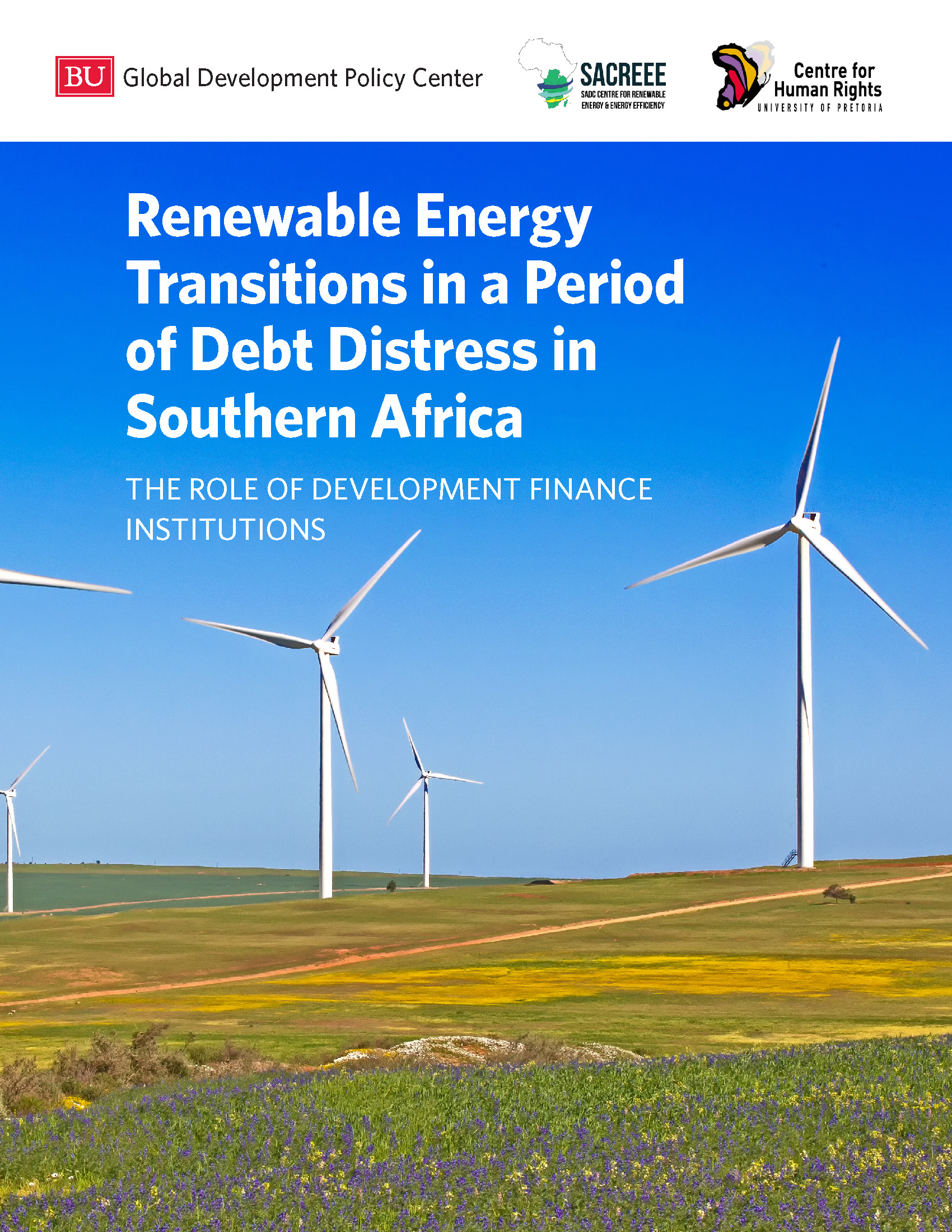
Renewable Energy Transitions in a Period of Debt Distress in Southern Africa
The Role of Development Finance Institutions
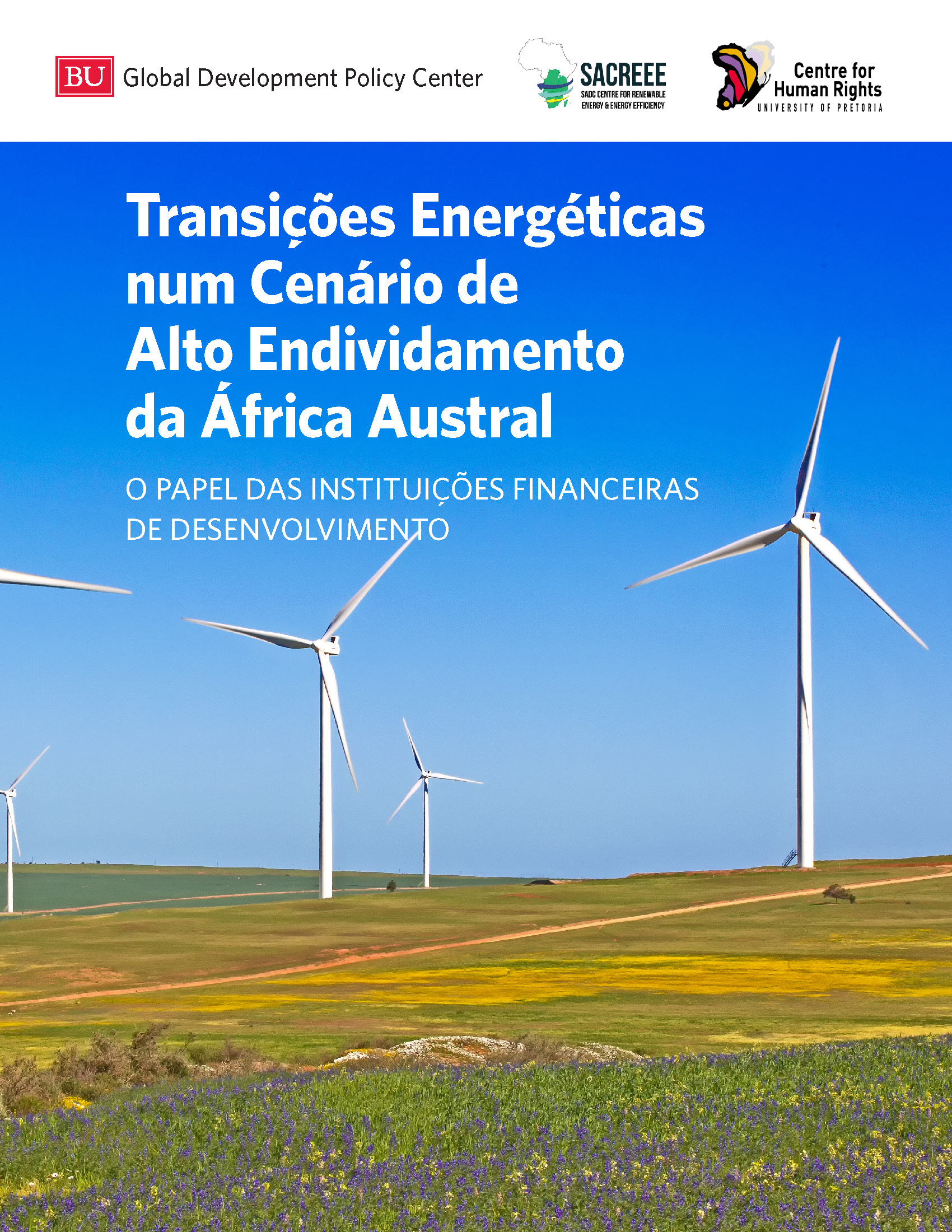
Transições Energéticas num Cenário de Alto Endividamento da África Austral
O papel das instituições financeiras de desenvolvimento
Read MoreTransparency and Accountability Series
These discussion papers argue that much more can be done to improve transparency and accountability within the New Development Bank (NDB). Read the reports for the recommendations made for finding a way forward for a potential Independent Accountability Mechanism (IAM) at the NDB.
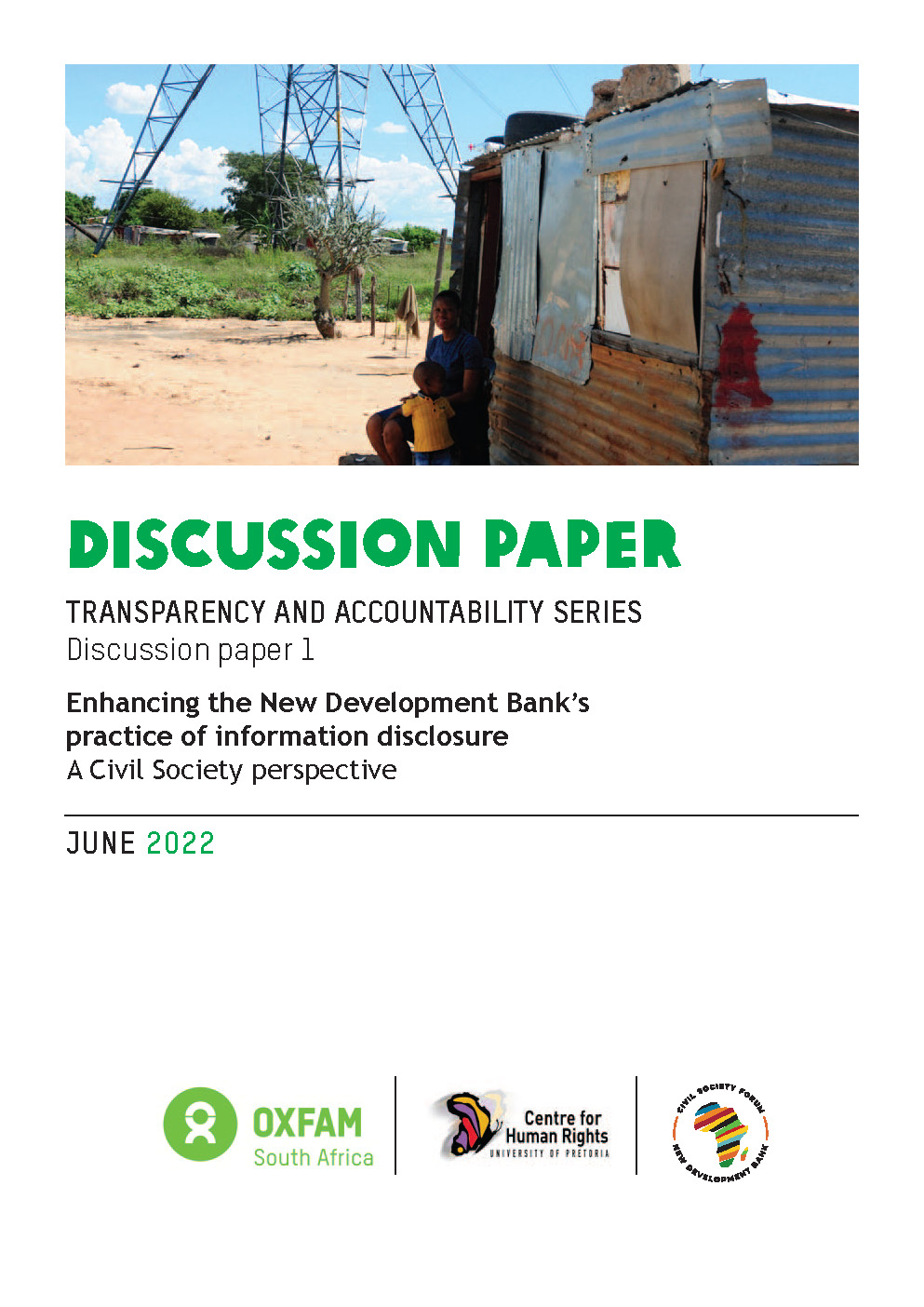
Transparency and Accountability Series Discussion Paper 1
Enhancing the New Development Bank’s practice of information disclosure. A Civil Society perspective
Download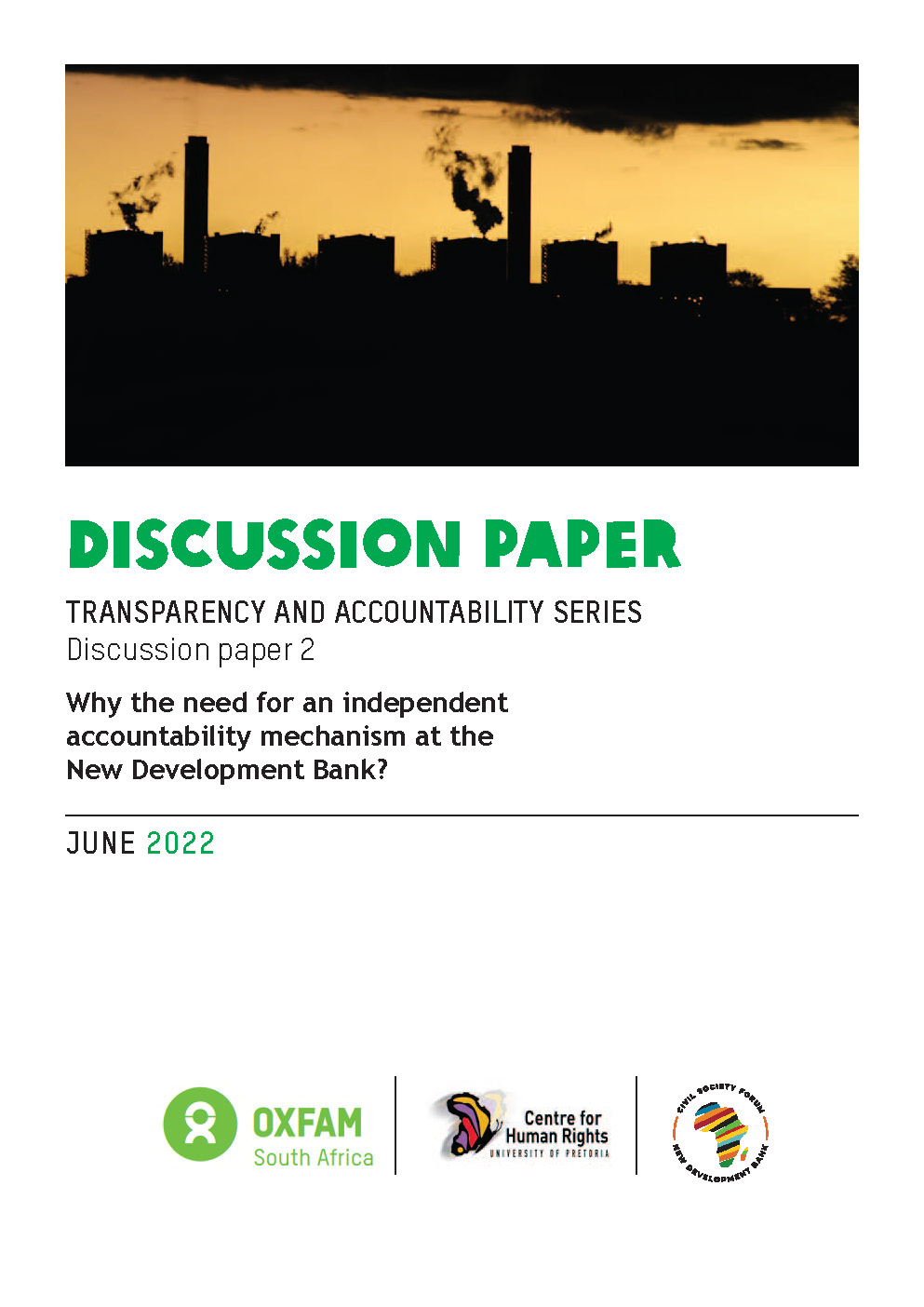
Transparency and Accountability Series Discussion Paper 2
Why the need for an independent accountability mechanism at the New Development Bank?
DownloadExpanding Renewable Energy for Access and Development
The International Development Law Unit (IDLU) at the Centre for Human Rights, Faculty of Law, University of Pretoria, in collaboration with the Boston University, Global Development Policy Center, the SADC Development Finance Resource Centre (SADC-DFRC), the SADC Centre for Renewable Energy and Energy Efficiency (SACREEE) and the Development Bank of Southern Africa recently published a report that articulates how development finance can play a significant role in helping SADC countries shift toward more renewable and accessible energy sources for their countries.
"In order for SADC to meet the needs and aspirations of its people, there is a need for a significant increase in investments into the energy sector in general, and renewable energy in particular."
The report was launched on 19 November 2020 at 14:30 SAST.
How to make economic reforms consistent with human rights obligations
UN Independent Expert and Centre for Human Rights develop booklet to promote economic reforms that are consistent with human rights obligations
The UN Independent Expert on foreign debt and human rights, Dr. Juan Pablo Bohoslavsky, developed the Guiding Principles on Human Rights Impact Assessments of Economic Reforms (A/HRC/40/57) to help governments understand how to use human rights impact assessments (HRIAs) to promote human rights compliant economic reform policies. In March 2019, the UN Human Rights Council adopted a resolution-taking note with appreciation of the Guiding Principles and encouraging states and intergovernmental organizations to consider taking them into account in developing and implementing economic reform policies. They can also be used by non-state actors to assess how well their government’s economic reforms comply with their human rights obligations.
Prof Daniel Bradlow of the Centre for Human Rights at the University of Pretoria developed the attached booklet in collaboration with Dr. Bohoslavsky and with the assistance of Ms. Tizi Merafe. It provides state authorities, national human rights institutions, individuals, groups and communities, non-governmental organizations, media, and civil society groups working with groups in situation of vulnerability, with a user-friendly introduction to the Guiding Principles and their potential use in promoting more human rights consistent economic reforms. This booklet was made possible with generous funding from the Open Society Initiative for Southern Africa.
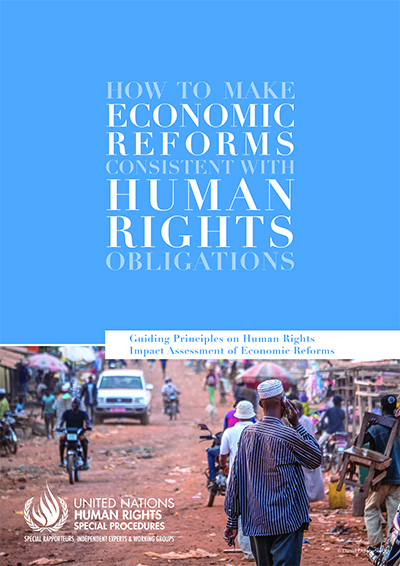
How to make economic reforms consistent with human rights obligations
This booklet provides a user-friendly introduction to the Guiding Principles on Human Rights Impact Assessments of Economic Reforms (A/HRC/40/57).
Download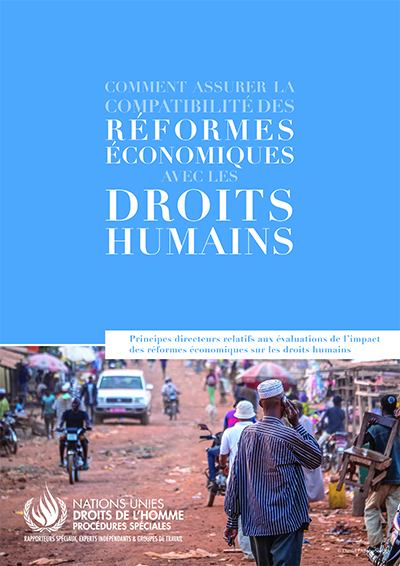
Comment assurer la compatibilité des réformes économiques avec les droits humains
Cette brochure fournit une introduction conviviale aux Principes directeurs relatifs aux évaluations de l’impact des réformes économiques sur les droits humains (A/HRC/40/57).
Télécharger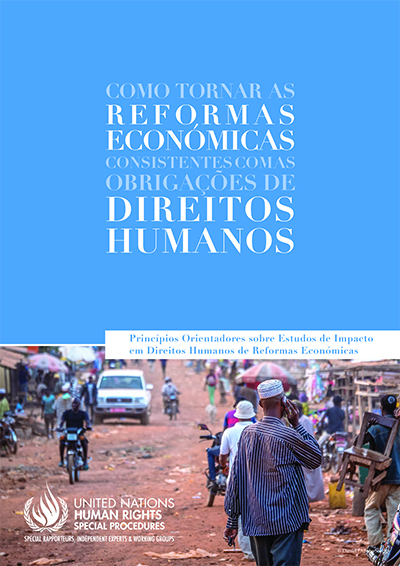
Como tornar as reformas económicas consistentes com as obrigações de direitos humanos
Esta brochura fornece uma introdução fácil de usar dos Princípios Orientadores para Estudo de Impacto em Direitos Humanos de Reformas Económicas (A/HRC/40/57).
Baixar

